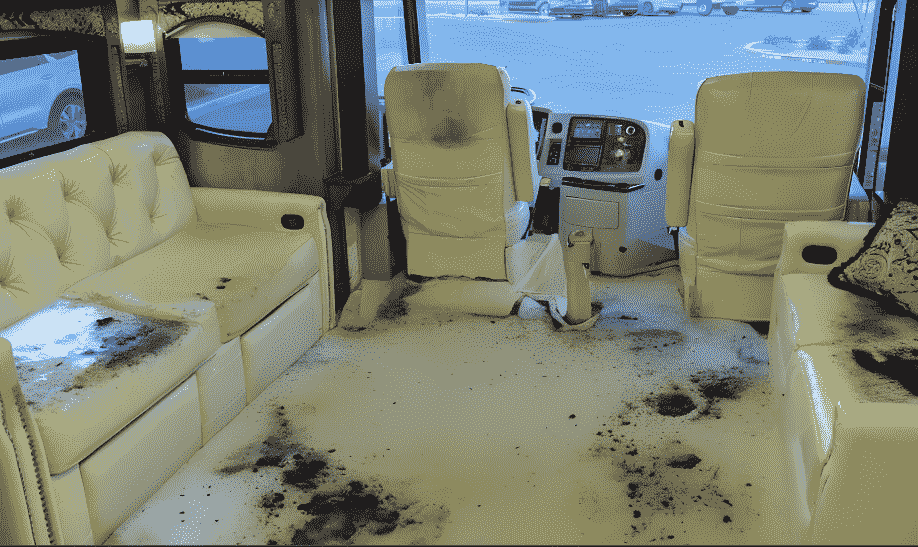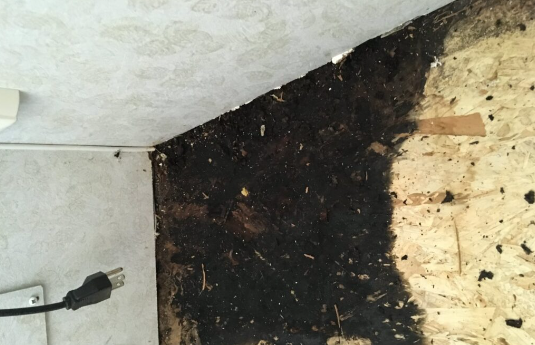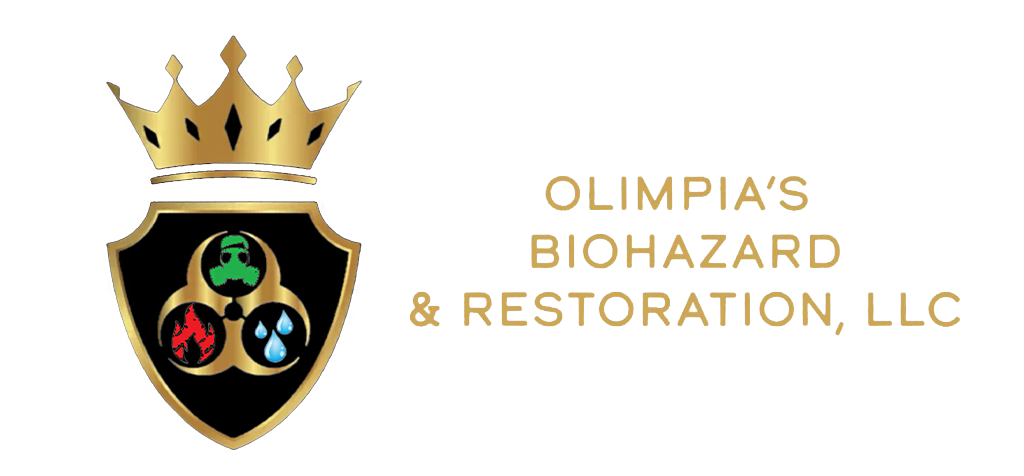Welcome to “Dealing with Mold in RVs and Campers in Portland: Troubleshooting Tips.” Your RV or camper is your ticket to adventure, offering the freedom to explore the stunning landscapes of Portland and beyond. However, the confined spaces and varying environmental conditions can make these mobile homes vulnerable to mold infestations. This comprehensive guide is your trusted companion in understanding, addressing, and preventing mold issues in your recreational vehicle. From recognizing the telltale signs of mold to comprehending the health risks and tackling mold problems effectively, we provide you with essential insights and practical solutions. Explore the troubleshooting tips, DIY techniques, and professional services available in Portland, as well as preventive measures to ensure your RV or camper remains a mold-free haven for your journeys.
Mold Management in RVs and Campers: Portland Troubleshooting Tips
Embarking on a journey through the scenic wonders of Portland in your RV or camper is a thrilling adventure, but it comes with its challenges, one of which is dealing with mold. In this guide by Olimpia’s Biohazard & Restoration LLC, we’ll navigate the ins and outs of ‘Dealing with Mold in RVs and Campers in Portland: Troubleshooting Tips,’ ensuring your mobile haven remains a healthy and mold-free space for your travels.


Recognizing the Signs of Mold in Your RV or Camper:
Recognizing mold in your RV or camper is essential for early intervention. Signs of mold infestation may include a musty, damp odor that permeates the space. Visible mold growth is a clear indicator, appearing as fuzzy, discolored patches on various surfaces such as walls, ceilings, and upholstery. Moreover, water stains or discoloration on walls, ceilings, or fabrics could be telltale signs of hidden mold issues. Keep an eye out for any physical symptoms like allergies, respiratory issues, coughing, or skin irritations, as these can be exacerbated by mold exposure. Recognizing these signs early empowers you to take prompt action to prevent mold from spreading and causing further damage.
Mold in RVs and campers can manifest in various ways. Musty, unpleasant odors are often an early indicator. Visible mold growth on surfaces, such as walls, ceilings, or upholstery, is another clear sign. Additionally, water stains on walls or ceilings may hint at hidden mold issues. Be attentive to physical symptoms too, like allergies, coughing, or skin irritations, which can be exacerbated by mold exposure. Recognizing these signs early empowers you to take prompt action to prevent mold from spreading and causing further damage.
Health Risks: Understanding the Dangers of Mold Infestations:
Mold infestations in RVs and campers can pose significant health risks, especially in confined living spaces. Prolonged exposure to mold spores can lead to a range of health problems, including respiratory issues like coughing and wheezing, allergies with symptoms like sneezing and itchy eyes, skin irritations, headaches, and more. Some individuals may be more sensitive to mold and experience severe reactions. Understanding these dangers underscores the importance of addressing mold problems promptly and thoroughly. Mold’s impact on health highlights the urgency of effective mold remediation to protect the well-being of anyone using or residing in the RV or camper.
Mold infestations in RVs and campers can pose significant health risks, especially given the confined living spaces. Prolonged exposure to mold spores can lead to respiratory problems, allergies, skin irritations, and other health issues. Understanding these dangers is crucial to grasp the importance of addressing mold problems swiftly and thoroughly. Mold’s impact on health underscores the urgency of effective mold remediation to protect the well-being of anyone using or residing in the RV or camper.
Common Causes of Mold Growth in RVs and Campers:
Mold growth in RVs and campers can often be attributed to specific factors. One common cause is moisture intrusion, which can occur through leaks from plumbing, the roof, or windows. High humidity levels within the camper, especially in humid climates or during rainy seasons, can also promote mold growth. Poor ventilation exacerbates the issue by trapping moisture indoors. Additionally, improperly stored or wet belongings, such as damp clothing or camping gear, can introduce moisture into the living space, providing an ideal environment for mold to flourish. Understanding these underlying causes empowers you to take proactive measures to prevent mold by addressing these issues at their source. Mold prevention strategies during water remediation are indispensable in the context of dealing with mold in RVs and campers in Portland, as they ensure a proactive approach to maintaining a healthy and mold-free living environment on the go.
Mold requires moisture and organic materials to thrive, making RVs and campers susceptible to infestations due to their enclosed environments. Common causes of mold growth include leaks from plumbing or the roof, high humidity in the camper, inadequate ventilation, and improperly stored or damp belongings. Understanding these underlying causes allows you to take proactive steps to prevent mold by addressing these issues at their source.
Troubleshooting Mold: A Step-by-Step Inspection Guide:
Troubleshooting mold issues in your RV or camper necessitates a systematic approach. This section provides a comprehensive, step-by-step inspection guide, allowing you to identify potential mold problems effectively. It advises where and how to check for mold, including hidden areas like behind walls, beneath flooring, inside cabinets, and on upholstery. Conducting a thorough inspection ensures that you uncover any hidden mold issues, guaranteeing a comprehensive and effective remediation process. By following these steps, you can be confident that you’ve identified all mold sources and can proceed with appropriate remediation measures.
This section provides a detailed, step-by-step guide for inspecting your RV or camper for mold. It explains where and how to check for mold, including behind walls, under flooring, inside cabinets, and on upholstery. A comprehensive inspection ensures you uncover hidden mold issues, ensuring a thorough and effective remediation process.
DIY Mold Removal: Tips and Best Practices:
For those who choose to handle mold removal themselves, it’s essential to follow proper guidelines and best practices. Safety precautions are paramount, including wearing appropriate protective gear like gloves, masks, and eye protection. The section provides recommendations for suitable cleaning products based on the affected surfaces and materials. Effective removal techniques are covered, such as scrubbing with mold-specific cleaners, vacuuming with HEPA filters to capture spores, and ensuring proper ventilation during the process. By adhering to these tips and best practices, you can ensure thorough mold elimination while safeguarding your health.
If you opt for DIY mold removal, this section offers invaluable advice. It covers essential safety precautions, the appropriate protective gear to use, suitable cleaning products for different surfaces, and effective removal techniques like scrubbing, vacuuming, and using HEPA filters. Following these tips and best practices ensures that you eliminate mold comprehensively and safely without endangering your health.
Professional Mold Remediation Services in Portland:
In situations where mold infestations are extensive, persistent, or pose health risks, seeking professional mold remediation services in Portland is a prudent choice. This section introduces readers to reputable service providers who specialize in handling challenging mold issues. It explains the advantages of hiring experts, such as their access to specialized equipment, extensive experience in mold remediation techniques, and their ability to guarantee comprehensive mold removal. When dealing with severe mold problems, professionals ensure that your RV or camper is safe, habitable, and entirely free from mold contamination.


In cases of extensive, persistent mold infestations or when health risks are involved, seeking professional mold remediation services in Portland is a wise decision. This section introduces reputable service providers and elaborates on the benefits of hiring experts. Professionals bring specialized equipment, extensive experience, and the assurance of thorough mold removal, ensuring your RV or camper is safe and mold-free.
Preventing Mold in Your RV or Camper: Maintenance Tips:
Preventing mold growth in your RV or camper is often more manageable than dealing with a full-blown infestation. This section provides valuable maintenance tips to reduce the risk of mold growth. It includes suggestions such as ensuring proper ventilation to minimize humidity, controlling moisture levels by addressing leaks promptly, storing belongings correctly to prevent moisture accumulation, and conducting regular inspections to detect and address potential mold triggers early. Implementing these practices significantly reduces the risk of mold taking hold in your RV or camper and ensures a healthier and more comfortable living environment.
Preventing mold growth is often easier than dealing with an infestation. This section provides valuable maintenance tips, such as ensuring proper ventilation to reduce humidity, controlling moisture levels by fixing leaks promptly, storing belongings correctly to prevent moisture accumulation, and conducting regular inspections to catch and address potential mold triggers early. Implementing these practices significantly reduces the risk of mold growth in your RV or camper.
Mold-Resistant Materials and Upgrades for RVs and Campers:
Upgrading your RV or camper with mold-resistant materials and features is a proactive measure to prevent mold issues. This section explores available options, such as moisture-resistant insulation, mold-resistant wall coverings, improved ventilation systems, and the use of dehumidifiers. These materials and upgrades can create an environment that is less conducive to mold growth, further reducing the likelihood of mold infestations in your RV or camper.
Upgrading your RV or camper with mold-resistant materials and features can be a proactive step in mold prevention. This section explores options such as moisture-resistant insulation, mold-resistant wall coverings, improved ventilation systems, and dehumidifiers. Investing in these materials and upgrades can help create an environment less conducive to mold growth.
Legal and Insurance Considerations for Mold Issues:
Dealing with mold in your RV or camper may involve legal and insurance aspects. This section provides readers with information about their legal rights and responsibilities when it comes to mold problems. It also offers guidance on navigating insurance claims and potential legal issues connected to mold damage. Understanding these considerations helps you make informed decisions and ensures that you are well-prepared when dealing with such matters.
Dealing with mold in your RV or camper may involve legal and insurance considerations. This section educates readers about their legal rights and responsibilities regarding mold problems. It also provides guidance on navigating insurance claims and potential legal issues connected to mold damage, ensuring you’re well-informed and prepared when dealing with such issues.
Real-Life Case Studies: Successful Mold Cleanup in Portland RVs:
Real-life case studies provide tangible examples of mold cleanup and remediation in RVs and campers in the Portland area. These stories offer practical insights into the challenges faced by individuals dealing with mold issues and the strategies they employed to successfully address them. By reading these case studies, you gain valuable knowledge and solutions that can guide your own approach to managing mold problems in your RV or camper.
Real-life case studies provide tangible examples of mold cleanup and remediation in RVs and campers in the Portland area. These stories offer practical insights into the challenges faced and the strategies employed to successfully address mold issues. They serve as valuable references for readers grappling with similar situations, offering inspiration and guidance for effective mold management.
FAQs:
FAQ 1: Can mold in my RV or camper be harmful?
Answer: Yes, mold can pose health risks, especially in the confined space of an RV or camper. Prolonged exposure to mold spores can lead to respiratory problems, allergies, skin irritations, and more. It’s crucial to address mold issues promptly to protect your health and ensure a safe living environment.
FAQ 2: How can I prevent mold growth in my RV or camper?
Answer: Preventing mold involves maintaining proper ventilation, promptly addressing leaks, storing items in dry conditions, and conducting regular inspections to catch moisture sources early. These proactive measures help minimize the risk of mold infestations.
FAQ 3: Is DIY mold removal safe and effective?
Answer: DIY mold removal can be effective for small, manageable infestations. However, it’s essential to follow safety precautions, use appropriate cleaning products, and ensure thorough cleaning to prevent mold regrowth. For extensive or persistent mold problems, professional mold remediation services are recommended to ensure complete removal and safety.
Conclusion:
In conclusion, navigating mold issues in RVs and campers in Portland demands a vigilant and proactive approach. Recognizing the signs of mold infestation, understanding the health risks, and grasping the common causes are foundational steps. A systematic troubleshooting guide empowers owners to identify and address mold problems effectively, whether through DIY methods or by seeking professional assistance. Additionally, preventive measures such as proper maintenance, upgrades with mold-resistant materials, and awareness of legal and insurance considerations play vital roles in mold management. The real-life case studies underscore the importance of these strategies. By following these troubleshooting tips, you can safeguard your RV or camper, ensuring a healthy, mold-free environment for your travels and adventures in Portland.
